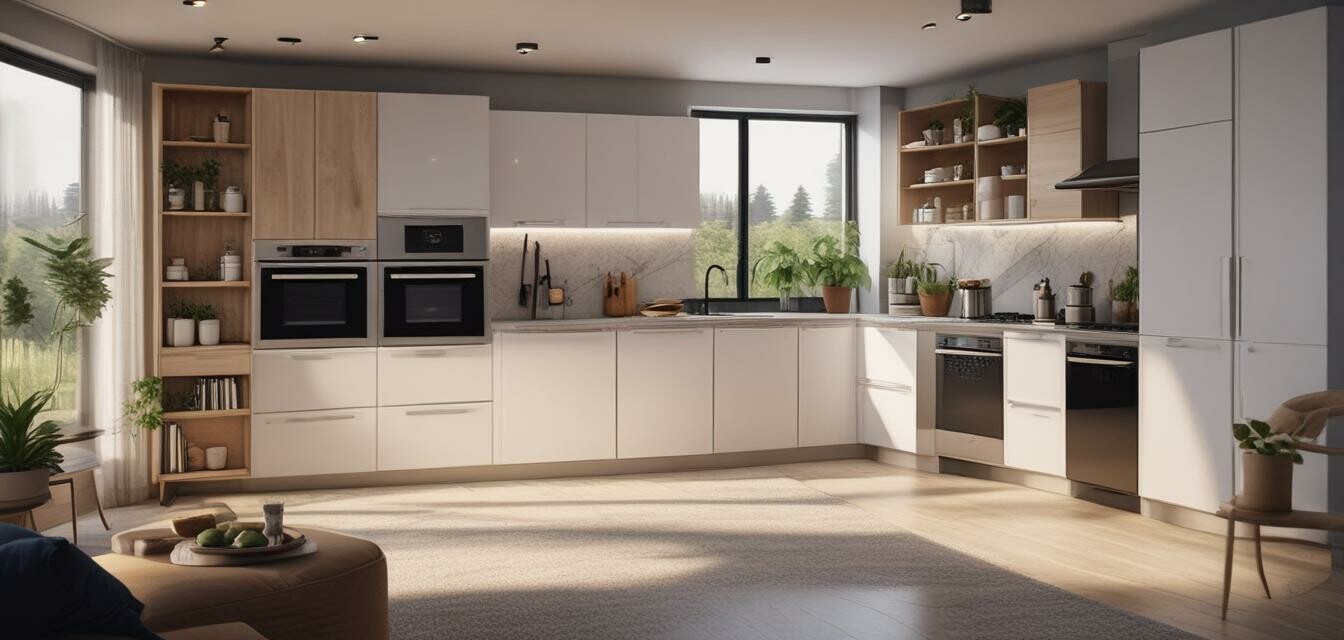
Maximizing Energy Savings in Shared Living Spaces
- Organize appliance usage among housemates for better energy savings.
- Communicate with housemates about appliance schedules.
- Utilize energy-efficient appliances to reduce consumption.
- Invoke energy-saving habits like unplugging and cleaning appliances.
- Consider peak and off-peak hours for appliance use to save costs.
Living in shared spaces can bring its own set of challenges, especially when it comes to managing common appliances. With various preferences and schedules, you need to find a balance that allows everyone to enjoy the comforts of home while keeping energy consumption in check. Here are some practical tips for maximizing energy savings without disrupting your housemates' needs.
Creating a Usage Schedule
A well-structured schedule for using appliances can greatly reduce energy consumption. In shared living spaces, it's crucial to facilitate communication about the usage of common appliances like dishwashers, washing machines, and ovens. Here are steps to develop an efficient usage schedule:
- Discuss schedules: Have a meeting with your roommates to determine each person's availability and preferences.
- Create a calendar: Use a shared online calendar to track appliance usage, especially for larger appliances that consume more energy.
- Allocate time slots: Assign specific time slots for using major appliances to prevent conflicts.
Communication is Key
Effective communication goes hand in hand with a usage schedule. Here are some suggestions to enhance communication among housemates:
- Establish a group chat or messaging platform for ongoing discussions about appliance usages, such as maintenance needs or updates.
- Share experiences and concerns regarding energy consumption, reminding each other of the importance of saving energy.
- Encourage transparency about any changes in availability that may affect the schedule.
Embrace Energy-Efficient Appliances
If you have control over your shared living space appliances, opt for energy-efficient models. Here’s why:
- They consume less electricity than standard appliances.
- They help you save on utility bills, contributing to lower costs for all housemates.
- They often come with advanced features that enhance usability.
For examples of energy-efficient appliances, explore our air conditioners and washing machines section.
Set Up Energy-Saving Habits
Saving energy starts with small, actionable habits. Here are a few suggestions you can implement together:
| Energy-Saving Habit | Description |
|---|---|
| Unplug appliances | Ensure that all appliances are unplugged when not in use to prevent phantom energy consumption. |
| Clean appliances | Regularly cleaning appliances helps them run more efficiently, consuming less energy. |
| Load appliances wisely | Make sure to run dishwashers and washing machines with full loads to maximize efficiency. |
| Use natural light | Utilize natural light during the day to minimize the use of electrical lighting. |
Utilize Off-Peak Hours
Understanding your energy provider's rates can be beneficial in saving money. Many providers offer lower rates during off-peak hours. Here’s how you can take advantage of this:
- Identify the peak and off-peak hours for your energy usage.
- Plan to use major appliances during off-peak hours to take advantage of lower rates.
- Consider running appliances overnight when demand is lower.
Encourage Recycling and Sustainable Practices
Another way to contribute to energy savings is by incorporating recycling and sustainability initiatives within your household. Some practices to consider include:
- Establish a recycling zone for plastics, paper, and metals for easier waste management.
- Switch to reusable items like cloth napkins and containers.
- Create a communal garden, if possible, to grow herbs and vegetables together.
Conclusion
Maximizing energy savings in shared living spaces requires coordination, communication, and a few strategic habits. By collaborating with housemates and being conscious of energy usage, you can create an environment that not only saves energy but also fosters a sense of community. For more tips on maintaining your home and kitchen appliances, make sure to check out our tips and how-to articles section.
Pros
- Lower energy bills due to shared usage and efficient habits.
- Fosters teamwork and communication among housemates.
- Promotes a more sustainable lifestyle.
Cons
- Potential scheduling conflicts may arise without effective communication.
- Dependent on the cooperation of all housemates.
